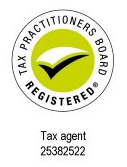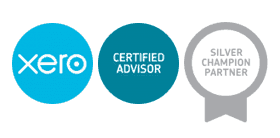When it comes to scams, prevention is better than a cure. It can be difficult to recover money lost to a scam and even more difficult to recover your identity if your personal information is stolen. The number one way you can prevent scams is by talking about them to spread awareness.
Scams Awareness Week is an annual campaign dedicated to raising awareness of scams. This year Scams Awareness Week is being held from 7 to 11 November with the theme ‘How to spot a scam’. There are lots of online resources and activities you can access throughout the week to help increase your awareness of scams.
Scams cost Australian consumers, businesses and the economy hundreds of millions of dollars each year and cause serious emotional harm to victims and their families. As at 31 August 2022, Scamwatch received 146, 700 reports with losses over $381.2 million so far this year. This is a 100% increase in losses compared to the same period last year.
Investment scams cause the most financial loss
Did you know investment scams cause the most financial loss in Australia? According to Scamwatch, over $267 million have been lost so far this year.
Investment scams involve promises of big payouts, quick money or guaranteed returns. Always be suspicious of any investment opportunities that promise a high return with little or no risk – if it seems too good to be true, it probably is – and is highly likely to be a scam.
Cryptocurrency scams are the most popular type of investment scams and the most common contact modes are phone, SMS and email. It is very difficult to identify legitimate cryptocurrency investments from scams. Scammers take advantage of the hype and the less regulated environment to ‘invest’ in Bitcoin or another cryptocurrency on your behalf. Before you invest you should ask yourself if you are willing to lose some or all of the money you have invested and know that if you go ahead you are investing with little or no protections behind you.
What you can do to prevent scams
Scams are everywhere, so it’s likely most people have either encountered a scam themselves or know someone who has. The number one way you can prevent scams is by raising awareness and talking about them with your family, friends, colleagues and clients. This is because many people who experience a scam never report it to anyone – they feel ashamed they fell for a scam. Talking about scams removes this stigma and spreads awareness. It can also help people get out of them sooner rather than later if they are already in one. Some other simple steps you can take to protect yourself and your business are:
- Never give any personal information to someone who has contacted you.
- Don’t click on hyperlinks in text/social media messages or emails, even if it appears to come from a trusted source.
- Go directly to a website through your browser. For example, to reach the MyGov website type ‘my.gov.au’ into your browser.
- Never respond to unsolicited messages and calls that ask for personal or financial details, even if they claim to be a from a reputable organisation or government authority — just press delete or hang up.
- Never provide a stranger remote access to your computer, even if they claim to be from a company you use.
- To verify the legitimacy of a contact, find them through an independent source such as an online search or past bill.
- Hang up and verify the identity of the person contacting you by calling the relevant organisation directly — find them through an independent source such as a phone book, past bill or online search.
- Search for reviews before purchasing from unfamiliar online traders.
- Be wary of sellers requesting unusual payment methods such as upfront payment via money order, wire transfer, international funds transfer, preloaded card or electronic currency, like Bitcoin.
- Verify any request to change bank details by contacting the supplier directly using trusted contact details you have previously used.
- Consider a multi-factor approval process for transactions over a certain dollar amount.
- Keep the security on your network and devices up-to-date, and have a good firewall to protect your data.
Where to get help
- Refer to Scamwatch if you or someone you know has been scammed, even if you didn’t fall for it.
- If you believe you might have unwittingly shared sensitive information, divulged your TFN or experienced a data breach, phone the ATO on 1800 467 033.
- If you are ever unsure about a request for information or the validity of an interaction by the ATO, call the ATO Scam Hotline on 1800 008 540 or visit the ATO scam site.
- Getting scammed can be a very confronting experience, even if there was no money lost. If you or someone you know is experiencing anxiety, emotional concerns or distress about scams, contact Lifeline or Beyond Blue.









